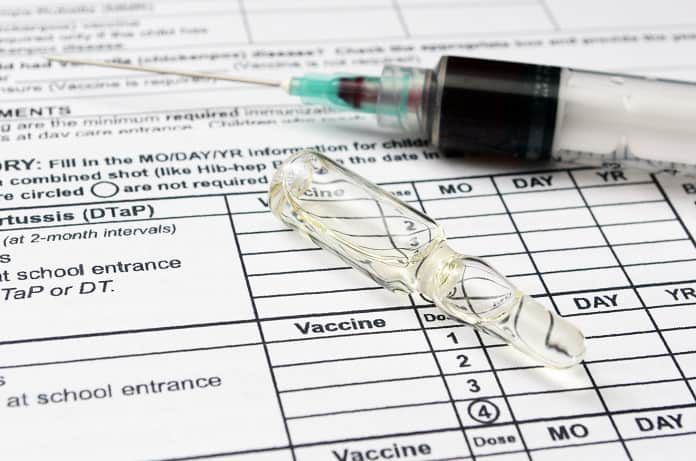In recent years, researchers have begun to focus on creating effective vaccines against fungal infections to fight some of the most serious and deadly diseases.
Fungal Infections
Most fungi prefer moist, dark environments. When the environment is right, microscopic spores will attach to a surface and germinate. Hair-like hyphae act like roots allowing the fungi to obtain nutrients and grow. Humans can inhale spores in the air or come into contact with them through the skin. Luckily, the vast majority of these spores never germinate.
Yet, fungi can cause illnesses in humans ranging from minor skin conditions to life-threatening diseases. Superficial infections affect the surface of the body, such as on skin and nails, or in the crotch and mouth. Superficial fungal infections can often be passed from person to person through direct contact. Some common examples are athlete’s foot and yeast infections.
Systemic fungal infections often start in the lungs but, in more severe cases, can spread to the blood or internal organs. These invasive fungal diseases often only take hold when a person’s natural defenses are weakened. For example, they can occur after chemotherapy, after having taken antibiotics for a bacterial infection and having normal bacterial flora wiped out, or in a hospital setting.
Vaccines Against Fungal Infections
While there are several vaccines formulated to protect people from bacteria and viruses, the development of vaccines against fungal infections has lagged. One of the major barriers has been the fact that whole-cell inactivated vaccines tend to be ineffective and difficult to standardize, while live, attenuated vaccines are unsafe in immunocompromised patients.
Recent research using animal models have evaluated the efficacy of new approaches to vaccines against fungal infections. Many of them involve binding a fungal surface glycoprotein or polysaccharide which don’t generate much of an immune response, to a non-fungal protein that does. The substances which enhance the body’s immune response are called adjuvants. The molecules that bind to another molecule are called ligands. These new fungal vaccines use adjuvants and ligands to activate immunity by stimulating the creation of memory T and B cells that will quickly and effectively respond to the pathogen if encountered a second time.
In a recent study, published in PLOS Pathogens, researchers from the University of Wisconsin – Madison, investigated using Dectin-2 ligands with glycoprotein Blastomyces Eng2 (BlEng2) to trigger an immune response in mice. They found that ligation of Dectin-2 by Bl-Eng-2 was the most potent at stimulating murine and human cells to produce cytokines known to foster the development of protective Th17 and Th1 cells which then promotes the activation and killing of fungi by myeloid effector cells.
These exciting results indicate that Bl-Eng2 could potentially be harnessed as an adjuvant for vaccination against an infectious disease that requires cellular immunity for host defense, such as fungal infections. The structural basis underpinning Bl-Eng2 potency as an adjuvant will be important to investigate and understand so that those features can be harnessed for vaccine development in the fight against fungal infections. This research brings us one step closer to developing vaccines against fungal infections.
Written by Debra A. Kellen, PhD
Citation: Wang, H., Lee, T. J., Fites, S. J., Merkhofer, R., Zarnowski, R., Brandhorst, T., … & Wüthrich, M. (2017). Ligation of Dectin-2 with a novel microbial ligand promotes adjuvant activity for vaccination. PLoS pathogens, 13(8), e1006568. https://doi.org/10.1371/journal.ppat.1006568



